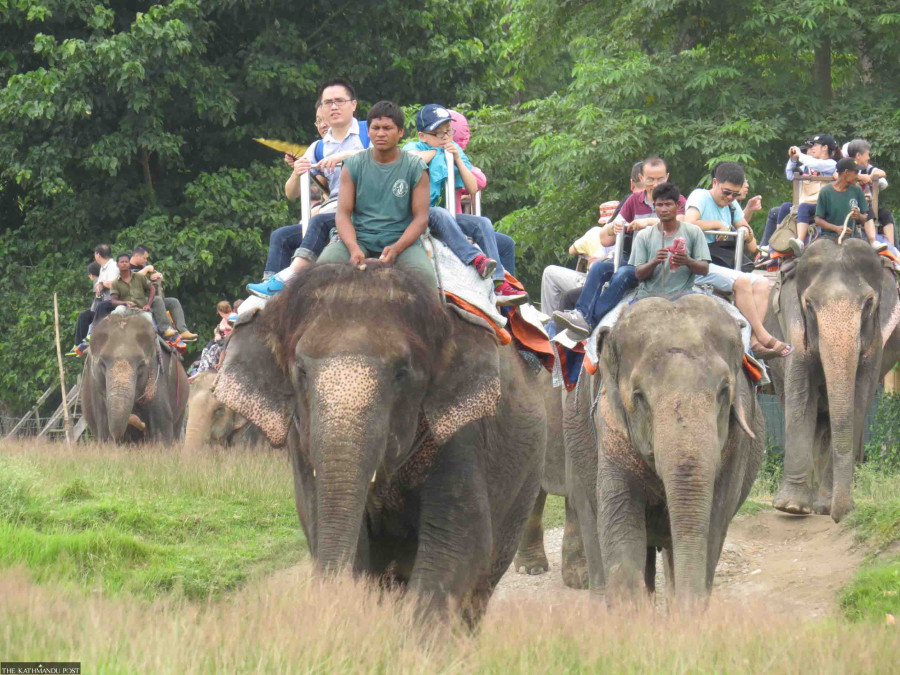Money
Travel industry criticises VAT, luxury taxes
The new tax regime will hurt the tourism industry, which is in recovery mode after years of shutdown, travel trade entrepreneurs say.
Subin Adhikari
The alliance of fifteen travel trade organisations on Friday criticised the government’s decision to charge value-added tax on the tourism industry.
Through the budget, the government imposed a 13 percent VAT on trekking and tour packages and airline tickets. The government has also imposed a 2 percent luxury tax on the service of five-star and luxury hotels and a 5 percent tax for Nepalis going abroad for a visit.
This comes on the heels of the airport tax hiked by the Civil Aviation Authority of Nepal.
In June last year, the civil aviation body hiked the passenger service charge to Rs500 from Rs200, for passengers flying from the international airport to other domestic airports.
The private sector accused the government of bringing such a rule without any homework that may make travel expensive, one of the key economic indicators.
They said that the government’s mindset is that everything that can be taxed should be taxed to the limit, instead of promoting travel.
Ramesh Thapa, president of the Nepal Association of Tours and Travels (NATTA), said there are already multiple taxes imposed on the travel sector by the government and the new addition of VAT would discourage the travel sector.
The tourist pays a number of fees including the national park entry fee. They even pay for the liaison officer deployed by the government for an expedition in the mountains. There are also fees for trekkers.
“It makes no sense to impose VAT now,” said Thapa.
He said that even the fees paid to potters, yak and mules to ferry goods in the mountain region are taxed.
The new tax regime will hurt the tourism sector, which is in recovery mode after years of shutdown, said the traders.
The entrepreneurs worry that the series of taxes imposed on the tourism sector will make Nepal an expensive destination, which may discourage foreigners from travelling to Nepal.
Nilhari Bastola, president of the Trekking Agencies Association of Nepal (TAAN), said Nepal was once an affordable destination. The money spent by trekkers reaches the porters to locals in the remote mountain vicinity.
“As Nepal has become an expensive destination, many tourists may now turn to Ladakh in India because of the cost factors.”
Higher taxes on airline tickets, hotels, sightseeing and national parks will harm the industry, he said.
Muralidhar Joshi, general manager of Simrik Air, said India has imposed just 5 percent goods and service tax in the aviation sector. “The Nepal government has now imposed 13 percent VAT, which is also against the provision of the International Civil Aviation Organisation (ICAO).”
Joshi, however, said that he is not clear whether the government has imposed VAT on international travel.
According to the resolutions of the ICAO, a specialised agency of the United Nations, no taxation on the sales or use of international air transport should be levied.
The International Air Transport Association (IATA), too, urges all states, including their political subdivisions, to fully implement the ICAO resolutions by ensuring that international air (1 ICAO Doc. 8632) transport is fully exempt and international air transport enterprises have the right of reclaiming all VAT paid (zero-rated).
Chandra Prasad Rijal, vice president of the Nepal Tourism Board, said it was a haphazard decision of the Ministry of Finance to impose VAT on the tourism industry.
“They consulted neither the Nepal Tourism Board nor any private sector before making such a decision,” said Rijal. “The ad-hoc policies in the past have killed nearly 50 percent of the rafting industry. We are afraid that the same thing will repeat.”




 9.7°C Kathmandu
9.7°C Kathmandu















